Humans
Sign up for our newsletter
We summarize the week's scientific breakthroughs every Thursday.
-
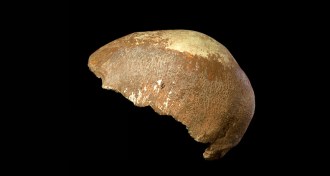 Anthropology
AnthropologyIsraeli fossil may recast history of first Europeans
New find suggests humans mated with Neandertals in Middle East before taking on Europe.
By Bruce Bower -
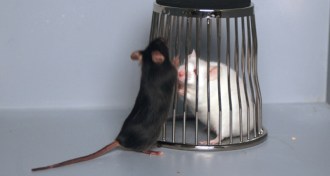 Neuroscience
NeuroscienceImmune system may remember and adapt to stress
Mice without immune systems who receive stressed immune cells are less anxious and more social, suggesting that the immune system can adapt to stress.
-
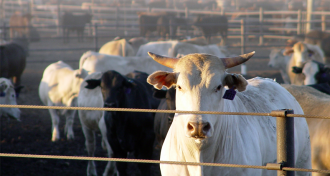 Agriculture
AgricultureSuperbugs take flight from cattle farms
Winds can carry antibiotics and drug-resistant bacteria from cattle farms to downwind communities.
By Beth Mole -
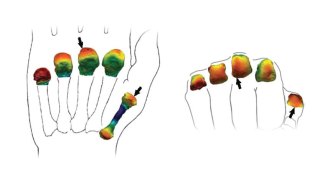 Anthropology
AnthropologyScans tell gripping tale of possible ancient tool use
South African fossils contain inner signs of humanlike hands, indicating possible tool use nearly 3 million years ago.
By Bruce Bower -
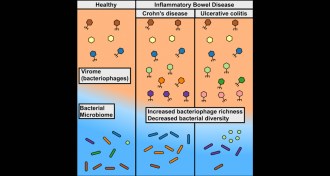 Life
LifeWhen bacteria-killing viruses take over, it’s bad news for the gut
A rise in some bacteria-killing viruses in the intestines may deplete good bacteria and trigger inflammatory bowel diseases.
-
 Psychology
PsychologyEmotions go unnamed for some with eating disorders
A portion of women with eating disorders have a separate problem recognizing their own emotions, a condition called alexithymia.
By Bruce Bower -
 Environment
EnvironmentAtrazine’s path to cancer possibly clarified
Scientists have identified a cellular button that the controversial herbicide atrazine presses to promote tumor development.
By Beth Mole -
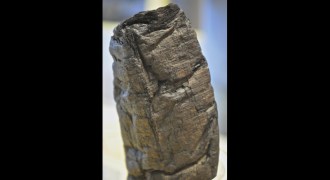 Archaeology
ArchaeologyScrolls preserved in Vesuvius eruption read with X-rays
A technique called X-ray phase contrast tomography allowed scientists to read burnt scrolls from a library destroyed by the 79 A.D. eruption of Vesuvius.
-
 Neuroscience
NeuroscienceBrain’s protective barrier gets leakier with age
Aging influences the breakdown of the blood-brain barrier, which may contribute to learning and memory problems later in life.
-
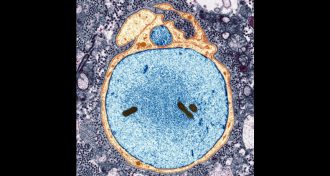 Health & Medicine
Health & MedicineImmune system ‘reset’ may give MS patients a new lease on life
With the help of their own stem cells, MS patients can stop the disease in its tracks in many cases.
By Nathan Seppa -
 Tech
TechUsing Facebook ‘likes,’ computer pegs people’s personalities
Using limited data from Facebook, computers can outdo humans in assessing a user’s openness, neuroticism and other personality traits.
-
 Science & Society
Science & SocietyAttitude, not aptitude, may contribute to the gender gap
Does talent or hard work matter most? A new survey suggests an emphasis on genius predicts how many women end up in a field of study.